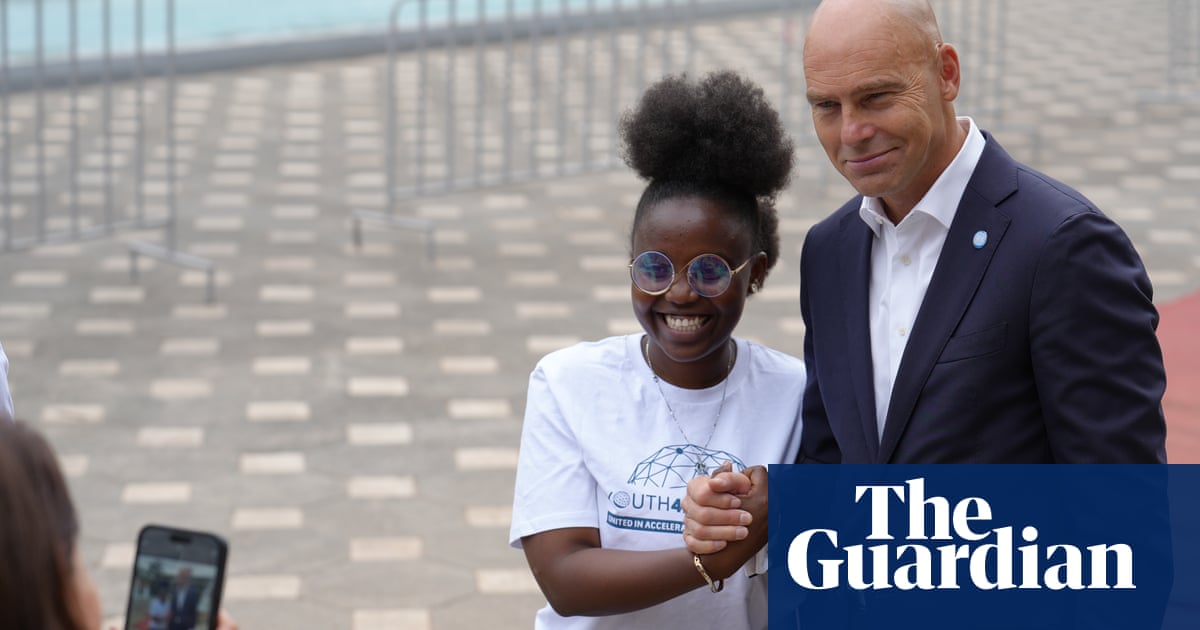Africa has all the potential to meet pressing climate challenges with innovative solutions, according to one of the world’s renowned environmentalists. With its vast natural capital and youthful population, “this is Africa’s century,” according to Prof Patrick Verkooijen, chief executive of the Global Center on Adaptation (GCA), and the new chancellor of the University of Nairobi.
But Verkooijen emphasises that support and investment from the global north is essential, highlighting that 65% of the world’s uncultivated land is in Africa, a continent with immense promise in its population, set to make up one in four people globally by 2050.
He described a “train wreck” scenario for the entire global south if promises made by the global north were not fulfilled before the Cop30 summit in Brazil in November 2025.
Verkooijen says global climate finance for adaptation was supposed to double by 2025 but is instead declining, jeopardising the UN’s sustainable development goals and threatening investment already made in resilience solutions.
“If you don’t invest in climate adaptation, how do you capitalise on opportunities for job creation, green growth and avoided losses?” he says.
The GCA, headquartered in the Netherlands, with offices in Ivory Coast, China and Bangladesh, is an international organisation working on climate adaptation worldwide, calling itself a “solutions broker”, and providing analysis on climate-proofing and food security.
“Every project without a climate lens is a wasted project,” says Verkooijen.
Partnering with governments and institutions such as the World Bank to integrate climate adaptation expertise into their projects, GCA’s portfolio boasts $9bn (£7bn) in climate-proofed projects in Africa alone.
Verkooijen says GCA’s role is threefold: political mobilisation, providing climate-risk analysis and ensuring climate-proof development. Chaired by the former UN secretary general Ban Ki-moon, its supervisory board includes Macky Sall, the former president of Senegal.
Advisory board members include the president of Kenya, William Ruto; the prime minister of Barbados, Mia Mottley; Tanzania’s president, Samia Suluhu Hassan; and the president of the African Development Bank, Akinwumi Adesina.
“We mobilise heads of state to talk about adaptation,” says Verkooijen, “because if they don’t, others won’t, and nothing will happen.
“In 2021, at Glasgow’s climate summit, climate adaptation was recognised as a central component of the climate crises debate for the first time.” But, he says, one of GCA’s significant hurdles remains finance.
“Climate finance for adaptation was supposed to double by 2025, but we’re seeing the numbers go down,” Verkooijen says.
“The reality is national governments in sub-Saharan Africa do their part. They pay twice as much on adaptation than they receive in bilateral aid. It’s a scandalous reality as they only emit 3% of greenhouse gas emissions yet suffer disproportionately from climate impacts.”
The global north had failed to honour commitments to double adaptation finance while the shortfall threatened to derail sustainable development goals in Africa, he says.
after newsletter promotion
“GCA hosted an African adaptation summit in Rotterdam two years ago. African heads of state came to the Netherlands, where they met leaders from the global north and said: ‘We come here not as beggars, but for a partnership.’ The Africa adaptation acceleration programme [AAAP] was placed on the table. It’s now the largest adaptation programme in the world.”
The AAAP, co-designed by the Africa Development Bank and GCA, and endorsed by the African Union, mobilises a $25bn initiative to accelerate climate change adaptation across Africa. Despite its scale, it is a drop in the bucket compared with the $100bn needed annually for adaptation in Africa. “We’re only receiving $10bn from the global north for adaptation, far below what is required,” Verkooijen stresses.
GCA’s work includes large-scale projects designed to protect vulnerable communities and infrastructure. For instance, it analyses significant developments such as the highway between Nairobi and Mombasa and “ensures projects are climate-proofed”, says Verkooijen.
As the newly appointed chancellor of the University of Nairobi, the first non-African to hold the post, Verkooijen is also tasked with transforming the institution into a global player. He is focused on the university’s “big five” initiatives: innovation, green jobs, AI, leadership and health research.
“If one million young Africans enter the labour market every month, where are the jobs of the future? It is in the fourth industrial revolution and the green space. We are creating ‘Silicon Savannah’, a hub for startups and venture capitalists, mirroring Silicon Valley’s success,” he says.
Verkooijen stresses the importance of international partnerships, particularly in fiscally constrained environments.
“The University of Nairobi aims to serve Africa and be a global player, but financial streams from the government will not increase,” he says, meaning the university must attract global support. He considers his role a “transmission belt” for harnessing international collaboration.
Looking towards November’s Cop30, he says the stakes are high. “There is no way for the UN’s sustainable development goals to be achieved in Africa without putting adaptation at its heart.”

